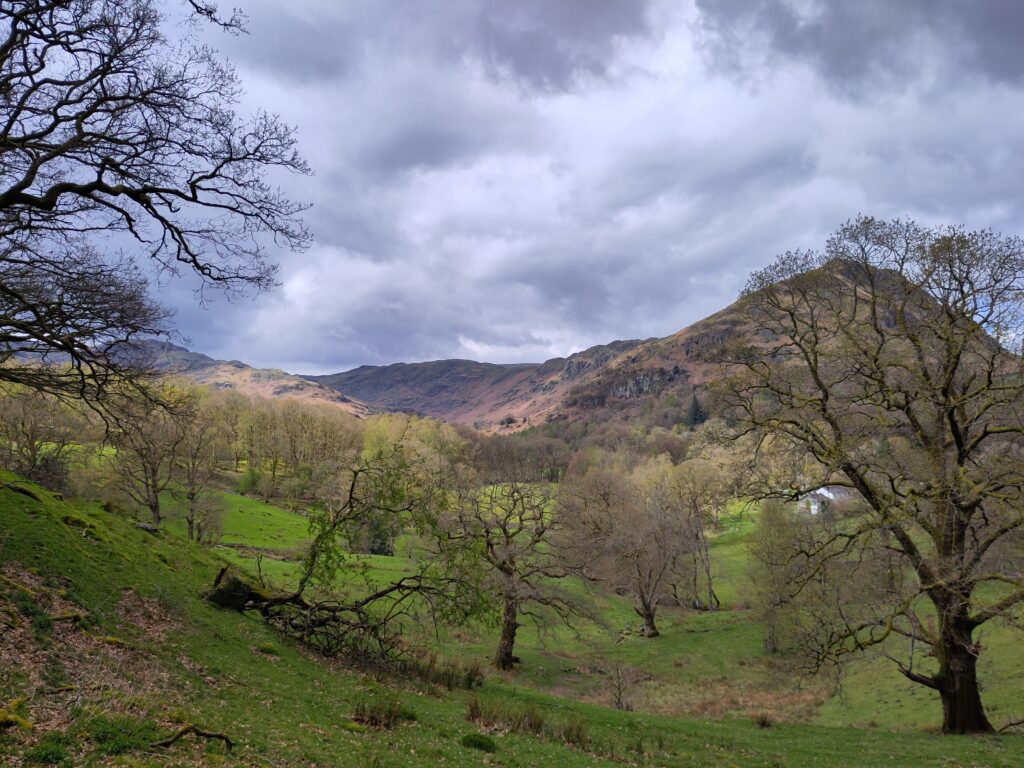In February 2018, Woodbrooke ran a six week long online course on ‘A Quaker Response to Animal Suffering.’ Its aim was to engage Friends with an important issue that is all too often ignored, trivialised or met with hostility. In the following blog post course leader and Woodbrooke tutor, Martin Layton, offers his reflections on the experience.
A version of this article first appeared in Issue 8 of Animal Spirit (Spring 2018), the Animal Interfaith Alliance magazine.

The course was designed with those wishing to deepen their understanding of both Quakerism and animal protection issues in mind. It was interesting that some of the participants shared feelings of being isolated within their own meetings – being marked out as the Animal Rights person – and they seemed grateful for being able to gather with like-minded people; finding it both renewing and a source of strength. However, the remoteness of online learning can itself be isolating and arguably it asks more of the learners’ personal discipline and commitment, and since we were dealing with some emotive material, there was a greater need for a sensitive, attentive and encouraging presence from the course leaders.
Quaker education can be characterised by its collaborative nature. Friends see truth as emergent, as something we are guided towards inwardly, but also as something that we seek out and test within our community and we see the light of truth as personally and socially transformative. This is why our approach couldn’t be prescriptive, but exploratory. As you’ll see from my outline below, the focus was as much on participant experience as on the authority of our tradition, but with the expectation that the two would be reconciled. The material we presented was designed to stimulate discussion and pose questions rather than offer definitive answers.
We started by sharing stories of our encounters with members of other species. It was striking that so many of us recognised how in these worldless and sometimes fleeting moments we are offered hints of the divine, of a sphere of life beyond our understanding. We considered our formative years and the child’s innocent, often instinctive, concern for other creatures and felt that our maturation had been a process of enculturation, whereby non-human life was ‘other-ed’ and human cruelties justified. However, we also shared moments of realisation, when the distance between the human and other-than-human world shrinks and hidden, transforming truths are revealed. We named this as being a kind of personal apocalypse.
In the second week, we looked at some of the foundational texts of the Abrahamic faiths – the creation myth of Genesis in particular –and considered how these are used to justify human supremacy and exclusiveness, and how this misinterpretation has led us to misuse our gifts in the exploitation of the rest of creation. We talked of human arrogance as spiritual inadequacy and pondered what a species level humility might look like.
We found that these same texts also offer us an alternative creation-centred story, one that speaks of the interconnection and interdependency of all life. In this reading, humans are asked to be servant leaders to creation; recognising their essential equality with other beings and using their gifts in humble service.
Describing their formative spiritual experiences, the first Quakers often talked of their return to the original Edenic state. By this I think they were expressing their sense of the unity of creation. The consequence of this meant confronting their own frailties and capacity for cruelty and it is in this new understanding where we find their spiritual imperative to do justly and love mercy.
In the third week, we took time to listen to the cries of the non-human world. We reacquainted ourselves with examples of animal suffering and shared our instinctive and emotional responses to what we heard. We acknowledged feelings of despair, loss, grief, anger, and our sense of being overwhelmed by the task ahead of us. These are understandable responses, but if we are not careful they can lead us into inertia. Therefore, we recognised the need for self –care and for a practice of spiritual discipline to reconnect us with ‘the Light that sustains us’.
Our discipleship helps us to be patterns and examples to others, to offer alternative ways of being and to show that even small choices can be life-affirming. One participant expressed this as ‘approaching life with open-hearted creative enthusiasm’. Our spiritual practices give us the nudge we need to live up to our responsibilities, and the courage to speak plainly to those with the power to stop animal exploitation.
Quakers use the word Testimony to describe their shared, community defining behaviours. Usually these are expressed as four values – simplicity, truth, peace and equality – but this is perhaps too simplistic a way of understanding them. Rather, our testimony arises out of our direct experience of Spirit. With this in mind, we discussed how a concern for animals is our testimony because our experience of the Spirit leads us to recognise the value of all life, and to live lives of justice and compassion.
In the fourth week, we looked more closely at the history of Quaker involvement in animal protection work. We were grateful to Thom Bonneville , clerk of Quaker Concern for Animals, who ran a live webinar event for us. He introduced us to Benjamin Lay, an eighteenth century American Quaker, whose ‘consistent, integrated, ethical worldview’ enabled him to make connections between animal cruelty, human slavery, globalisation, and environmental destruction. Thom argued that Lay was amongst the first Friends to tackle animal cruelty on the principles of the equality, autonomy and sanctity of non-human life, rather than because of the effect of cruel acts on the souls of the perpetrators.
The second Quaker Thom spoke about brought us up to the Twentieth century. British Friend Ruth Harrison’s concern against factory farming led her to write an era defining book, Animal Machines. With its focus on meticulous research and the analysis of industry data, this work kick-started the modern era of animal rights.
We briefly discussed the different methods used by these two Friends. Lay was fiery and confrontational. Like an Old Testament prophet, he challenged his contemporaries to notice the gulf between their professed values and their actual behaviour, whilst Harrison’s work was quieter, more gently persuasive. Friends sometimes speak of the historic tension between their prophets and their reconcilers, and although both have different approaches and are open to different criticisms both are needed.
The fifth week focused on our personal responsibility as Quakers, whose faith is rooted in Christianity. We turned to two stories from Luke’s Gospel for inspiration: The Good Samaritan and The Rich Man and Lazarus. Luke’s idea of the ‘great chasm’ between the powerful and powerless resonated with us. It asked us to consider how we too are separated from exploited and voiceless creatures, how as mere passers-by we collude with their oppressors. As Friends, we concluded, our role is to bring this darkness into the Light and to be a visible, supportive and patient presence for those who suffer.
The final week asked us to explore what it might mean for British Quakers to become an authentically animal friendly community. Overall, we ended feeling hopeful that Truth has its own strength and will persist, despite our instinct towards pessimism. In time Friends will tune –in to the cries of the non-human world and take up their ‘unshirkable’ responsibility towards them. We were clear that given our celebrated tradition of social justice campaigning, a corporate response from British Quakers on animal suffering could have a far reaching impact, and just as we are mindful of the many challenges of faithfully following the divine call, we also remember that there are many more joys.
We ended with recognition of the need to set time aside for prayerful reflection. As a church, Quakers make claims to be ‘spirit-led’ and therefore need to spend time with that still, small voice to discern what it truly means to answer ‘that of God in everyone’.
Perhaps we didn’t uncover any startling new revelations over our six weeks together, but I was left with a strong sense that the participants had been strengthened by the fellowship and been renewed in their witness, with the realisation that rather than being incidental to their faith, their concern for animal suffering lies at the very heart of it.
A Quaker Response to Animal Suffering will run again in 2019, starting 4th March. To participate, please visit https://www.woodbrooke.org.uk/item/a-quaker-response-to-animal-suffering/



